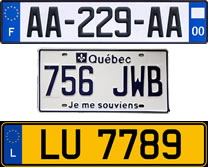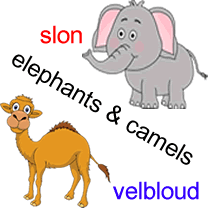Last night I wrote a song called Two Left Feet, about someone who believes he can’t dance because he has two left feet – not literally, but in the idiomatic sense of being clumsy and awkward, especally when trying to dance.
I used to feel like this, and still do a bit when I try to learn new dances, or different styles of dancing. I don’t let this stop me though, and dance anyway, which is what the song is all about. I’ll add a link to the song here when I’ve recorded it.
I like to translate the titles of my songs and tunes into Welsh, so I looked for Welsh equivalents of this idiom. These include:
- bod â dwy droed chwith = to be with two left feet
- bod yn drwstan eich traed = to be clumsy of foot
- bod yn drwstan ar eich traed = to be clumsy on one’s feet
- bod yn lloglog = to be clumsy / awkward
Drwstan [ˈtrʊstan] is a mutated form of trwstan which means clumsy, awkward, unsteady, bungling, unpolished, shoddy, unfortunate, unlucky, unhappy, sad or wretched.
Lloglog [ˈɬɔɡlɔɡ] means clumsy, awkward, untidy or baggy.
Trwstan and Lloglog might be good names for characters in a story or song – maybe I’ll use them in my next song.
Incidentally, trwstan is not related to the name Tristan, which comes, via Old French, from the Celtic name Drystan, from drest (riot, tumult).
Other Welsh words for clumsy and awkward include:
- trwsgl, afrosgo, lletchwith, trwstan, ysgaprwth, clogyrnaidd, anfedrus, di-lun, annehau, anneheuig, ysgafnrwth
annosbarthus, annechau, clemog, sgrongol, siagal
The word awkward comes from the awk, an old word meaning odd, wrong, clumsy or uncomfortable, and the adjectival suffix -ward.
Awk comes from the Old Norse ǫfugr / ǫfigr / afigr (turned backwards, unkind, harsh).
Sources: Geiriadur Prifysgol Cymru (A Dictionary of the Welsh Language), Geiriadur yr Academi (The Welsh Academy English-Welsh Dictionary Online), Wiktionary







